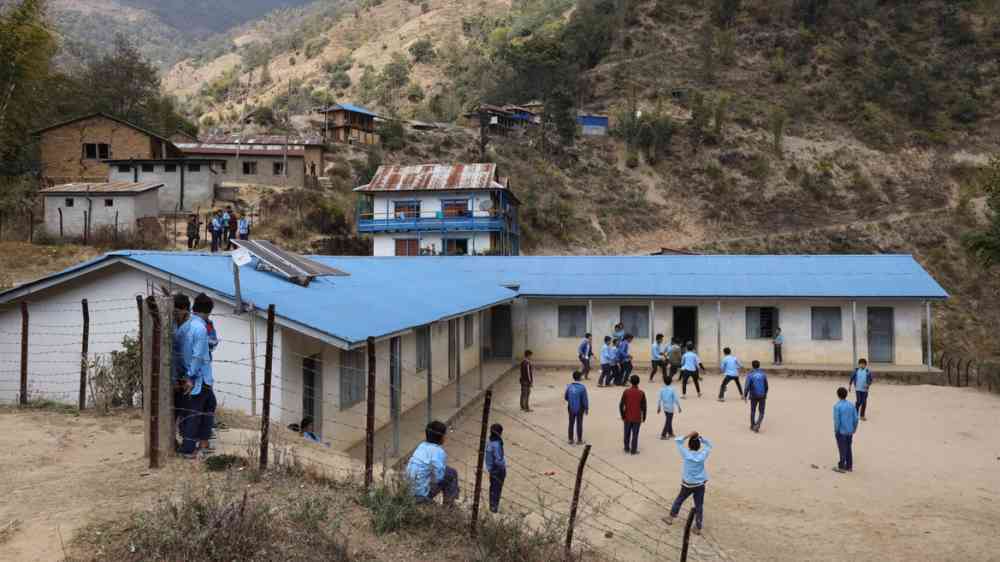
Visit the Mallika Primary School, located in Jorayal Rural Municipality in Doti District in far-western Nepal, on any given day and you’ll find the school grounds to be a hive of activity, with children out and about, playing football or volleyball or a simple game of catch.
This, however, would not have been the case just two years ago, when teachers had to actively dissuade the students from playing on the premises, considering the various risks that existed.
With the school perched on a rise, there was a long drop to the road below from the playground. Although a barbed wire fence had been propped up, it was neither complete nor secure to prevent a fall. The topography and the open ground also meant that the school was vulnerable to lightning strikes in an area where such incidents are common and often fatal.
Recognizing these risks to the safety of children, under the Child-Centred Disaster Risk Reduction Programme (CCDRR), UNICEF – with generous funding support from the Margaret A. Cargill Foundation – undertook a number of interventions at Mallika Primary, in partnership with the Jorayal Rural Municipality and the school. This started with construction of walls and a sturdier net fence all around the grounds, to stop children from falling over, as well as the installation of an anti-lightning device atop the school structure.
“We have also received assistance to build child-friendly toilets and other water, sanitation and hygiene facilities,”
says Bhoj Thapa, one of the teachers at the school and the assigned disaster risk reduction focal point.
“In the case of girl children, sanitary pads are now provided in the school itself.”
He adds that the support from UNICEF and the municipality has also extended to installing water filters for safe, drinking water in every classroom.
In addition, as part of the CCDRR programme, teachers, guardians as well as children themselves, have also been oriented in different aspects of reducing the risk of disasters as well as responding to a crisis.
“The programme has reached schools and communities, and through demonstrations, engaged people directly,”
says Nanda Raj Bhatta, ward chair in Jorayal.
“This has had a very good impact.”
For Bhoj, being able to see his students freely run and play as they should is the biggest reward.
“The children are safe,”
he says with a smile.